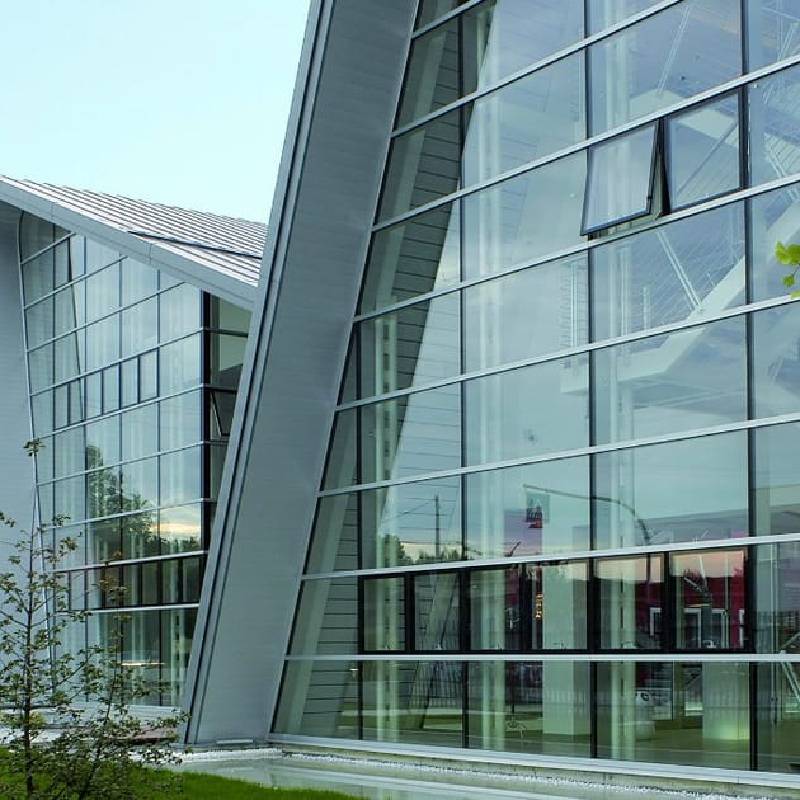

The Importance and Innovation of Tempered Glass Factories
Tempered glass, also known as toughened glass, is significantly stronger than ordinary glass, making it an essential material in various industries, including construction, automotive, and appliances. The production of tempered glass involves a special heat treatment process that enhances its strength and safety, which is why tempered glass factories play a crucial role in modern manufacturing.
Understanding Tempered Glass
Tempered glass is created by heating glass to a high temperature and then rapidly cooling it. This process changes the structure of the glass, allowing it to withstand higher levels of stress and pressure. Unlike regular glass, which can shatter into sharp shards, tempered glass breaks into small, blunt pieces, reducing the risk of injury. This unique characteristic makes tempered glass the preferred choice in applications where safety is paramount, such as in shower doors, glass doors, and facades.
The Role of Tempered Glass Factories
Tempered glass factories are equipped with advanced technology and skilled labor to produce high-quality glass products. These factories must adhere to strict safety standards and regulations given the inherent risks associated with glass manufacturing. The process begins with high-quality raw materials, typically silica sand, soda ash, and limestone, which are melted together in a furnace.
Once the molten glass is formed, it is shaped into the desired size and thickness, which can vary significantly according to the intended application. The glass sheets are then subjected to the tempering process, where they are heated to temperatures exceeding 600 degrees Celsius and subsequently cooled rapidly. This thermal treatment increases the glass's strength, making it resistant to thermal shock and impacts.
Innovations in Manufacturing Processes

As the demand for tempered glass continues to grow, so too do the innovations in its manufacturing processes. Modern tempered glass factories are embracing automation and computer-controlled systems to enhance efficiency and precision. Automated cutting tables and tempering ovens allow for streamlined production and reduced human error, ensuring that each glass piece meets stringent quality standards.
Moreover, advancements in energy efficiency have become a focal point for many manufacturers. Eco-friendly practices are being implemented, such as the use of renewable energy sources to power production lines and the incorporation of recycling programs for waste glass. These innovations not only reduce the environmental impact of tempered glass production but also lower operational costs, benefitting both manufacturers and consumers.
Applications of Tempered Glass
The versatility of tempered glass is evident in its wide range of applications. In the construction sector, it is used in building facades, skylights, and balustrades, providing not only safety but also aesthetic appeal. In the automotive industry, tempered glass is employed in side and rear windows due to its strength and ability to withstand temperature fluctuations.
Furthermore, tempered glass finds significant use in the domestic sphere, notably in kitchen counters, table tops, and appliances like ovens and microwaves. With the rise of modern interior design, clear and frosted tempered glass features have become fashionable elements in homes, offering both functionality and style.
Looking Ahead
As we look to the future, tempered glass factories are likely to continue evolving to meet the demands of a changing world. Innovations in materials science are paving the way for smarter glass solutions, such as self-cleaning and insulated tempered glass. With an increasing emphasis on energy efficiency and sustainability, tempered glass will play a vital role in the development of green buildings and eco-friendly consumer products.
In conclusion, tempered glass factories are integral to the production of a safe, strong, and versatile material that supports a myriad of industries. With ongoing advancements in technology and a commitment to sustainable practices, the future of tempered glass manufacturing looks promising, ensuring that this essential material will continue to meet the needs of a dynamic and demanding world.